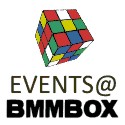S.Y.B.M.M Semester IV
1. MASS MEDIA RESEARCH
- Introduction to Research Concepts
- Scientific research and its basic principles, empiricism, verifiability, generalization
- Quantitative vs. qualitative idea
- Role of research in the media
- Commercial vs. academic research
- Administrative v. cultural research
- Research related to media institutions, media message and media audiences
- Research Approaches or designs
- Experiment
- Survey
- Case study
- Comparison
- Longitudinal research
- Observational study
- Content analysis
- Data collection techniques
- Questionnaire
- Interview
- Schedule
- Different types of observation techniques
- Sampling techniques
- Measurement and scaling
- Basic statistical technique – deviation, correlation analysis
- Scientific research and its basic principles, empiricism, verifiability, generalization
- Introduction to Mass Media Research
- Research in media messages – content analysis and semiotic analysis
- Content Analysis
- Definition and uses
- Quantitative and qualitative approach
- Steps in content analysis
- Devising means of a quantification system
- Limitations of content analysis
- Introduction to Semiology
- Research in media audience and the ‘effects’ debate
- Magic bullet to limited effects
- Users and gratification model
- Cultivation analysis
- Audience reception
2. UNDERSTANDING CINEMA
- A discussion of early narrative cinema
- A discussion of Soviet cinema
- Lecture with clips on Hollywood studio system
- Discussion and screening of early Indian cinema and the development of studio system in India
- A discussion of Italian neorealism
- A discussion of parallel cinema movement
- A discussion of Hate’s films
- A discussion of Japanese cinema
- A screening of Kurosawa’s films
- A discussion of classical narrative technique
- A discussion of East
- European comic-political cinema
- A discussion on the Star system and the Hindi formula film
- A discussion on independent film-making in Hollywood
- A discussion of Indian global cinema
- Screening of Mohsen makhmalbaf or Abbas Kiarostamis recent films along with the discussion of contemporary cinema
- A visit to a shoot in film city
- Lecture demonstration on technical aspects of the film
3. ORGANISATIONAL BEHAVIOUR
- The Organizational Environment Model
- Organization environments
- Organization as systems
- Formal organization : design and structure
- Division of labor and task independence
- Specialization of work
- Distribution of authority
- Organizational Culture
- Sources of organizational culture
- Types of organizational culture
- Manifestation of organizational culture
- Managing organization culture
- Organizational sub-culture
- Organizational Socialization
- Learning how to adapt to work
- Early socialization influences
- Preliminary work socialization
- Organizational socialization
- Work force diversity, gender, ethnic, and community issues
- Motivation
a) Motivation results model
b) Theories of motivation
-
- Need theories
- Two factor theory
- Job design approach
- Achievement power theory
- Process theories
- Reinforcement theory
- Expectancy theory
- Equity theory
- Goal setting theory
- Need theories
- Application of motivation theories
- Job enrichment
- Self directed work group
- Job rotation and cross training
- Learner management structures
- Total quality management
- Positive reinforcement programme
- Productivity gain sharing approaches
- Groups in Organization and Group Dynamics
- Issues of conformity, social facilitation
- Risky shift and polarization
- Group cohesion and consequences
- Cooperation and competition
- Conditions fostering cooperation and competition
- Decision making
- Characteristics of decision making process
- Ideal vs. actual decision making
- Advantages and disadvantages
- Group thinking
- Decision making in networked organization
- Concept of team work and its effectiveness
- Stress
- Sources of stress; work and non work factors
- Stress and coping
- Objective environment
- Psychological environment
- Individual differences
- Stress manifestations coping strategies
4. RADIO AND TELEVISION
Radio:
A)
- Radio Language
- Script writing for news
- Documentary, feature, drama, speech, skit, soap opera
- Special audience programmes
- Voice presentations
- Announcing
- Compeering
- Adlibbing
- Interviewing
- Narrating
- Conversation
- News reading
- Programme policies and services
- Critical analysis of radio programme
- Radio forums and clubs
- Audience research
B)
- Radio programme production techniques
- Sound studios and transmission facilities
- Reverberation and echo
- Various types of microphones
- Tape recorders and playback machines
- Recording
- Sound mixing
- Editing
Television:
- Scripting for various kinds of programmes on television
- Documentaries and features
- Entertainment programmes
- Online programmes
- Educational programmes
- Models of presentations
- Programme research
- Planning
- Budgeting and scheduling
- Indoor and outdoor shooting
- Video production
- Introduction to video camera techniques
- Audio techniques
- Television studio operations
- Lighting
- Live programme production
- Role and functions of studio personnel
- Graphics
- Special effects
- Editing
- Programme evaluation
- Identifying and researching topics
- Writing programme proposals
- Marketing
5. ADVANCED COMPUTERS
- Desktop publishing
- Advanced desktop publishing
- Computer animation
- Web Page designing
6. PHOTOGRAPHY AND PRINT PRODUCTION
- Basic Principles of Photography
- Properties of light, electromagnetic spectrum, reflection, transmission, refraction and polarization of light. Different type of light sources and their properties
- Controlling light, pinhole camera, concave and convex lenses and mirrors, real and virtual image formation
- Photosensitive material, Image formation, latent image development as fixing
- Camera
- Mechanism of aperture, shutter, camera body, view finder, lenses, transport
- Classification of camera and their relative comparison
- Camera operation, exposure light tables
- Basic Photography
- Various parts of the camera
- Loading and shooting on black and white film
- Effect of aperture
- Effect of shutter speed
- Using flash light
- Use of camera accessories
- Care and maintenance of camera equipment
- Colour Photography
- Introduction to colour film
- Chemistry of colour development and enlargement
- Contact and projection printing
- Colour and light, basic principles of colour sensitivity, colour temperature, colour reversal film, colour negative film
- Light and lighting, outdoor, night and indoor lighting
- Colour development
- Print Production
- Major landmarks in history and development of print technology
- Basic print process
- Print machines and image carriers, letter press, offset, silk screen, digital print
- DTP
- Future trends in print technology
- Exercise for handling typical jobs









